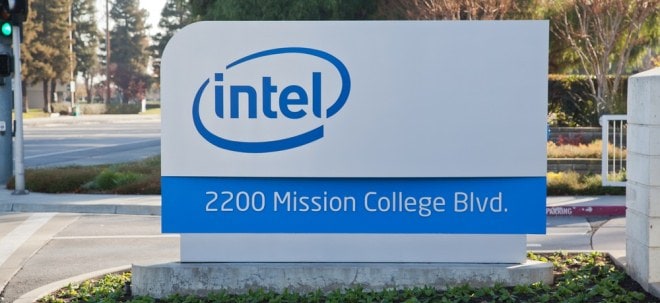Becker's Healthcare and Net Health Survey: Only Half of Healthcare Leaders See AI and Advanced Analytics as Solutions for Cost Efficiency and ROI Around Reimbursement
Healthcare leaders are rethinking tech investments to safeguard revenue, improve efficiency, and ensure compliance amid reimbursement and interoperability uncertainty
PITTSBURGH, Sept. 16, 2025 /PRNewswire/ -- A survey conducted by Becker's Healthcare and Net Health, a trusted source for specialized software solutions that empower restorative care providers across the continuum of care, reveals that healthcare leaders are concerned about payer integration challenges and view AI as key to boosting reimbursement, efficiency, and ROI, signaling a broader shift toward financial efficiency, regulatory readiness, and smarter, connected systems.
Health systems are grappling with uncertainty surrounding changing reimbursement rules and interoperability standards. While many decision-makers are optimistic, some maintain reservations. To remain resilient amid ongoing payment model shifts, healthcare leaders are investing in technology that supports reimbursement and enhances cost efficiency, such as payer integration and AI, according to the survey results.
The survey asked 100 health system and hospital CFOs, finance VPs, and clinical technology leaders about their priorities as they navigate changes in regulatory frameworks and reimbursement models. The ongoing questioning around these changes emphasizes why the concept of reimbursement resilience and sustaining predictable revenue in the face of policy uncertainty and operational complexity is a priority across health systems.
"In a time of regulatory uncertainty, health system leaders are making strategic business decisions to prioritize economic efficiency, much like other financial decision-makers across various industries," said Francesca Vereb, Senior Vice President of Marketing at Net Health. "As the healthcare industry continues to evolve, it's evident that health systems are leaning more on AI tools and system interoperability to drive efficiency, meet compliance benchmarks, and ensure their organization is ready to adapt to change."
Key Trends Outlined in the Survey Include:
- Regulatory uncertainty is redefining financial stability: 42% of respondents expressed some level of optimism about possible changes to reimbursement policies under the new administration, yet there is still uncertainty and significant concern around data privacy laws (28%), value-based care implementation (27%), and interoperability mandates (26%). Healthcare leaders still expect technology solutions to ease the growing burden of compliance, not add to it, with the top three tech investment areas for the next year being revenue cycle management tools (RCM), compliance tools, and EHR upgrades.
- Artificial intelligence is viewed with optimism, but many need more clarity on its potential: Only half (49%) of health system leaders surveyed see AI and advanced analytics as a solution for cost efficiency and ROI as it relates to reimbursement, almost as many leaders are unclear about its potential. Confidence in AI is still forming, and adoption will depend on demonstrating ROI, ease of use, and regulatory safety.
- As reimbursement policies change, effective payer integration continues to be a pain point: Respondents report changes to interoperability standards among their top three challenges in the upcoming year. Tech buyers are seeking integrated solutions that improve both efficiency and security. While a significant number of those surveyed have full integration in their health system (48%), a majority (52%) admit their systems are only somewhat integrated with payers like Medicare, Medicaid, and insurance companies to allow for direct billing in the EHR and help with reimbursement.
Health systems increasingly see tech as a solution to support efficiency and reimbursement, but their technological investments must keep up with their evolving needs. Leaders are prioritizing reducing denials, ensuring compliance integrity, and modernizing EHRs to support evolving care models and payer demands. Access the full survey here for a detailed look at the findings and actionable insights for health system leaders.
About Net Health
Net Health is a trusted source for more than 25,000 healthcare organizations across the continuum of care. Our specialized software solutions enable restorative care providers and their organizations to improve both patient outcomes and financial performance. Over 30 years of expertise in wound care and rehab therapy inform our electronic health record (EHR) software, patient engagement tools, and predictive analytics. Our technology platforms help administrators manage workflow, specialists engage with patients, and executives drive business growth. Net Health is a portfolio company of The Carlyle Group, Level Equity, and Silversmith Capital Partners. Learn more at www.nethealth.com.
![]() View original content to download multimedia:https://www.prnewswire.com/news-releases/beckers-healthcare-and-net-health-survey-only-half-of-healthcare-leaders-see-ai-and-advanced-analytics-as-solutions-for-cost-efficiency-and-roi-around-reimbursement-302557844.html
View original content to download multimedia:https://www.prnewswire.com/news-releases/beckers-healthcare-and-net-health-survey-only-half-of-healthcare-leaders-see-ai-and-advanced-analytics-as-solutions-for-cost-efficiency-and-roi-around-reimbursement-302557844.html
SOURCE Net Health Systems, Inc.


